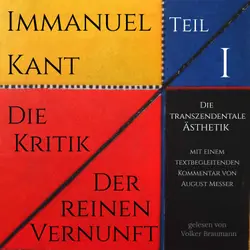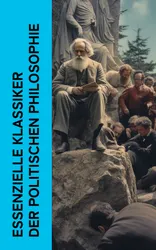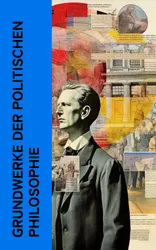Immanuel Kant's "Critique of Practical Reason" serves as a foundational text in moral philosophy, elucidating his pivotal concepts of duty, moral law, and autonomy. Written in a rigorous and systematic style, this work extends the exploration initiated in his earlier "Critique of Pure Reason," bridging theoretical understanding with practical application. Kant articulates the necessity of a universal moral law grounded in reason, arguing for a categorical imperative that compels individuals to act according to maxims that could be legislated as universal law. Through meticulous analysis and dense argumentation, Kant's literary form reflects Enlightenment ideals, fostering a discourse that elevates rationality as the essence of ethical principles. Immanuel Kant, a luminary of the Enlightenment, constructed his moral philosophy during a period rife with metaphysical speculation and burgeoning empirical science. His academic journey at the University of Königsberg was marked by intellectual rigor and an unwavering commitment to reason, which propelled him to question the nature of human freedom and moral accountability. The "Critique of Practical Reason" not only builds upon his critical philosophy but also resonates with his life experiences in a rapidly changing world, where the quest for moral certainty became increasingly vital. I highly recommend "Critique of Practical Reason" to readers seeking a profound engagement with ethical reasoning and the role of human agency. Kant's work challenges us to reconsider our moral responsibilities within the frameworks of rationality and autonomy, making it essential for students of philosophy and anyone invested in understanding the principles underpinning human behavior. His arguments continue to influence contemporary debates in ethics, reinforcing the timelessness of his insights and their applicability to modern moral dilemmas.

Crítica de la Razón Pura
Immanuel Kant
audiobook
An Answer to the Question: What is Enlightenment?
Immanuel Kant
audiobook
Preisschrift über die Fortschritte der Metaphysik
Immanuel Kant
book
Allgemeine Naturgeschichte und Theorie des Himmels : Die kosmologische Revolution der Aufklärung: Naturgesetze und die Struktur des Universums
Immanuel Kant
book
Immanuel Kant zum Reinhören
Immanuel Kant
audiobook
Die Kritik der reinen Vernunft : Die transzendentale Ästhetik
Immanuel Kant
audiobook
Ikuiseen rauhaan
Immanuel Kant
audiobook
Träume eines Geistersehers : erläutert durch Träume der Metaphysik
Immanuel Kant
audiobook
50 Meisterwerke der Philosophie : Metaphysik, Das Gastmahl, Bhagavadgita, Tractatus logico-philosophicus, Kritik der reinen Vernunft, Also sprach Zarathustra, Selbstbetrachtungen von Marcus Aurelius
Ludwig Wittgenstein, Edmund Husserl, Karl Marx, Søren Kierkegaard, Friedrich Nietzsche, Ralph Waldo Emerson, John Stuart Mill, Georg Wilhelm Friedrich Hegel, Friedrich Schelling, Johann Gottlieb Fichte, Immanuel Kant, John Locke, Montesquieu, Jean Jacques Rousseau, David Hume, Gottfried Wilhelm Leibniz, Baruch Spinoza, Konfuzius, Laotse, Platon, Xenophon, Aristoteles, Marcus Tullius Cicero, Seneca, Epiktet, Marc Aurel, Plotin, Thomas von Aquin, Nicolaus von Cues, Erasmus von Rotterdam, Niccolò Machiavelli, Tommaso Campanella, Martin Luther, Giordano Bruno, Samuel von Pufendorf, Abbé Castel de Saint-Pierre, Michel de Montaigne, René Descartes, Francis Bacon, Blaise Pascal
book
Essenzielle Klassiker der politischen Philosophie : Der Staat, Der Gesellschaftsvertrag, Der Fürst, Utopia, Manifest der Kommunistischen Partei, Geschichte der Socialdemokratie
Niccolò Machiavelli, Montesquieu, Friedrich der Große, Platon, Aristoteles, Marcus Tullius Cicero, Tommaso Campanella, Thomas Morus, Samuel von Pufendorf, Abbé Castel de Saint-Pierre, Jean Jacques Rousseau, Immanuel Kant, Johann Gottlieb Fichte, Karl Marx, Friedrich Engels, Wilhelm von Humboldt, Friedrich Christoph Dahlmann, Franz Mehring, Johann Most, John Henry Mackay, Rosa Luxemburg, Erich Mühsam
book
Grundwerke der politischen Philosophie : Der Staat, Der Gesellschaftsvertrag, Der Fürst, Utopia, Manifest der Kommunistischen Partei, Geschichte der Socialdemokratie, Parlamentarischer Kretenismus
Platon, Aristoteles, Marcus Tullius Cicero, Niccolò Machiavelli, Tommaso Campanella, Thomas Morus, Samuel von Pufendorf, Abbé Castel de Saint-Pierre, Jean Jacques Rousseau, Montesquieu, Immanuel Kant, Friedrich der Große, Johann Gottlieb Fichte, Karl Marx, Friedrich Engels, Wilhelm von Humboldt, Friedrich Christoph Dahlmann, Franz Mehring, Johann Most, John Henry Mackay, Rosa Luxemburg, Erich Mühsam
book
Anthropologie in pragmatischer Hinsicht : Naturlehre des Menschen
Immanuel Kant
book
